The Relationship Kryptonite of Every Myers-Briggs® Personality Type
In the world of relationships, personality clashes can create mind-boggling conflicts. When we can’t mentally get into our partner’s shoes we may inadvertently say or do something that triggers them or makes them lash out at us in an unexpected way. It’s all too easy to offend or misunderstand each other. So what can we do about it?
Today we’re going to explore some of the weaknesses and blind spots each personality type faces in a relationship. We all have weaknesses, and it’s nothing to be ashamed of. But recognizing them and doing something to circumvent them can help you to strengthen your relationships (both romantic and platonic).
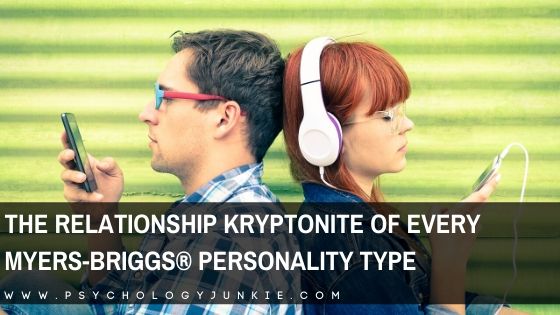
Not sure what your personality type is? Take our new personality questionnaire here. Or you can take the official MBTI® here.
The ENFP – Distracting Yourself from Problems
Enthusiastic and imaginative, you bring liveliness and possibility into your relationship. But sometimes you’re so immersed in your ideas and activities that you distract yourself from problems that are currently going on. You may avoid facing today’s problems, choosing instead to contemplate promising future possibilities and potentials. This can cause nitty-gritty issues to build up and become much more destructive than they would be if they had been dealt with right away.
The ENTP – Brainstorming Rather Than Acting
Sometimes you get so focused on theorizing about a problem that you don’t deal with it as quickly as you should. You might look around you and see all kinds of “chores” that need to be done. Rather than picking up the tools and dealing with them, you might grab a notebook and try to perfect the perfect system so that the problems will deal with themselves. Sometimes it’s vital to take action and deal with a problem in a hands-on way rather than hypothesizing or theorizing about it.
The INFP – Being Your Own Worst Critic
Your imagination is fertile and vivid, and it’s a place you go to for relief from a world that often seems harsh and chaotic. However, sometimes you revert to that imaginative world instead of confronting problems in your relationship head-on. It can be very difficult for you to confront others, or express when they’ve hurt or wronged you. You might blame yourself instead, holding everything on your own shoulders. The weight of this all can become debilitating if you let it continue. Learn to respect and love yourself with the same intensity that you love others. Write out your thoughts if needed, but address problems and issues as they arise rather than letting them fester.
Read This Next: INFPs and Their Compatibility with Every Myers-Briggs® Personality Type
The INTP – Detaching
Your imaginative, analytical mind contains a wondrous realm of ideas, hypotheses, and experiments. However, sometimes in your relationships, you become so focused on analysis that you lose touch with the raw, personal nature of what is happening in the present. Rather than tuning into your heart, you might detach yourself from problems and analyze them impersonally. This can make your partner feel like an equation to be solved rather than a human to be loved. Take time to express how you feel to your partner, even if it’s easier to do in writing. Show them the love you feel, and don’t be afraid to be vulnerable (if you trust your partner).
The ENFJ – Disagreeing to Disagree
You’re a motivating, empathic partner with a great potential for creating intimacy and honesty in a relationship. However, sometimes you assume your partner is on the same page with you about something when they’re really not. When they disagree with you about something, you can personalize it and become devastated as a result. Remember that it’s okay not to agree about everything, and remember to give your partner space to have their own ideas, feelings, habits, and unique tastes.
The ENTJ – Having to “Win”
You’re an extremely determined, strategic individual. You like to win at whatever challenge presents itself to you. However, sometimes this “win-lose” mentality can hurt your relationships. Any argument or disagreement can turn into a debate you want to win rather than a sensitive, tactful discussion that might require compromise rather than competition. Take the time to actively listen to your partner when disagreements occur. Avoid using sarcasm. Validate your partner’s feelings and remember that some disagreements don’t have winners or losers.
The INFJ – Taking On Too Much
You’re a deeply empathic, insightful individual. When you’re in a relationship, you have a unique ability to sense your partner’s emotional state and physical needs. Sometimes this strength can be both a blessing and a curse. You may find yourself feeling like you’ve got to solve everything for your partner and anticipate their needs before they express them out loud. Over time, this can become exhausting and you may resent your partner for the mental and emotional labor you’re exerting. Make sure to take time to openly verbalize your needs (including the need for alone time). Remember that you’re not responsible for everyone’s feelings – and don’t resent your partner for taking on responsibilities they never asked you to take on.
Read This Next: How INFJs Say “I Love You”
The INTJ – Devaluing Emotional Expression
Independent and intelligent, you prize autonomy more than most personality types. However, it’s vital that you don’t assume that someone who seeks less autonomy is automatically “clingy” or inept in some way. Remember to show your partner support, validation, and assistance. You may feel love in your heart, but forget to verbalize it. Write simple love notes on post-it notes and leave them on your partner’s mirror. Tell them you care about them. Bring those rich, inner feelings into the open so that your partner can be assured of your support and affection.
Read This Next: INTJs and Their Compatibility with Every Myers-Briggs® Personality Type
The ESFP – Restlessness
You’re someone who brings excitement, fun, and variety into your partner’s life. Your liveliness and spontaneity is something that makes you lovable, but it can also make you restless and distracted at times. You may be so enticed by new experiences and opportunities that you forget about plans you’ve made with your partner. It can also be easy for you to become restless and bored once a relationship reaches the stable, routine stage. Make it a point to set reminders on your phone for plans with your spouse. Also, make sure to try something new on a regular basis (even if it’s as simple as a new food or a new television show!). Make sure you’re getting regular unstructured time to be your fun, vivacious, spontaneous self!
The ESTP – Boredom
Clever and pragmatic, you’re someone who thrives on action, variety, and spontaneity. You love a fast-paced, exciting life where overcoming challenges yields immediate results. However, in relationships, once things reach a “settled” state, you can become bored and restless. You might feel the need to push your partner to be more spontaneous, active, and adventurous than is natural for them. It can be easy for you to “hurry” them along rather than respecting their space. Once in a while, hang around when things are boring, show respect for their way of doing things, and make sure you’ve allotted yourself time to be your energetic, impromptu self! If you truly love them and they love you, you’ll both find ways to respect each other’s needs.
The ISFP – Keeping Your Feelings Quiet
Compassionate and principled, you excel at showing love in hands-on, practical ways. You might bake cookies for your partner or shovel their snow. However, sometimes bringing your inner feelings out into the open can be a challenge. You may feel like “talk is cheap,” or feel self-conscious about expressing yourself so directly. This can cause certain partners to doubt your affection. Make sure to verbalize your feelings out-loud – send a text saying, “I love you” or make it a point to verbalize how your partner makes you feel.
The ISTP – Refusing to be Vulnerable
Cool and street-smart, you’re someone who prizes your own autonomy and personal space. Little thoughts might pass through your mind about how you could show your love to your partner. But it’s easy for you to brush them off as “silly” or over-the-top. Over time, you may not realize that you’re rarely showing your true feelings to your partner. Stop yourself when this happens, and allow yourself to be silly, sappy, or vulnerable. Sometimes being goofy and affectionate is exactly what a relationship needs. Let go of the brakes and show your partner your sentimental side.
The ESFJ – Avoiding Conflict Like the Plague
Responsible and compassionate, you are gifted at creating an atmosphere of harmony and acceptance in your relationship. However, sometimes you can work too hard to create this atmosphere – sweeping problems and disagreements under the rug rather than facing them head-on. You might talk to your friends about relationship problems rather than directly addressing them with your partner. Remember that it’s okay to be angry sometimes. Don’t be afraid to discuss disagreements, conflicts, and hurts directly with your spouse. Sometimes disharmony is an essential catalyst for creating growth and honesty in a relationship.
The ESTJ – Dismissing Sensitivities
Pragmatic and productive, you would do almost anything for the person you love. You strive to be level-headed, reasonable, and loyal. However, sometimes you inadvertently damage your relationships when you fail to value the emotional needs of your partner. You might be tactless and offend them, only to shrug off their reaction as “over-sensitive.” You might also assume your love is self-evident through your actions rather than expressing it out-loud. Because it can be hard for you to recognize the plethora of feelings your partner might have, it’s important to ask. Make a point to ask your partner how they are feeling, what they need, and give them a non-judgmental space to discuss it. This openness, consideration, and respect can help you to circumvent countless obstacles in your relationship.
The ISFJ – Stifling Anger
Gentle and empathetic, you display a tremendous amount of loyalty and consideration in your relationships. However, sometimes you’re so eager to keep the peace that you stifle your frustrations or anger. Your partner might wish you were more direct or aggressive, willing to come right out with offenses and disagreements than stewing on them or ignoring them. Don’t be afraid to get mad every once in a while and be direct with issues that come up. This wrinkle of disharmony, frustration, and confrontation can be a catalyst for growth and deeper intimacy. Your partner might actually admire that you’re being up-front and fighting for your relationship and your personal needs.
The ISTJ – Critiquing Rather than Praising
Hard-working and responsible, you believe that everyone should do their best for their community. When you perform well at your job and get a symbol of recognition, you might shrug it off because you were “just doing your job.” While your perseverance is admirable, it can also mean that you forget to praise people when they do well. You might be more prone to critiquing the wrong and saying nothing about what’s right, which can leave your partner feeling unappreciated and irritated. Make sure to show appreciation for what your partner does on a daily basis. Verbalize your admiration for their strengths, abilities, and gifts. Without this, your partner might feel unappreciated and angry.
What Are Your Thoughts?
Find out more about your personality type in our eBooks, Discovering You: Unlocking the Power of Personality Type, The INFJ – Understanding the Mystic, and The INFP – Understanding the Dreamer. You can also connect with me via Facebook, Instagram, or Twitter!


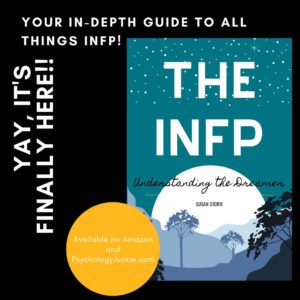



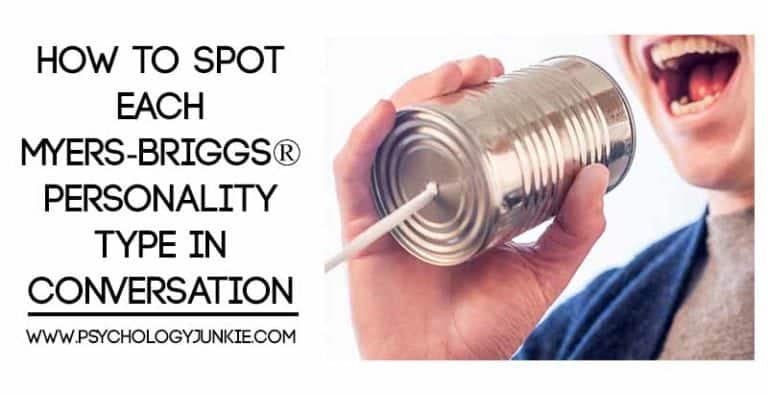

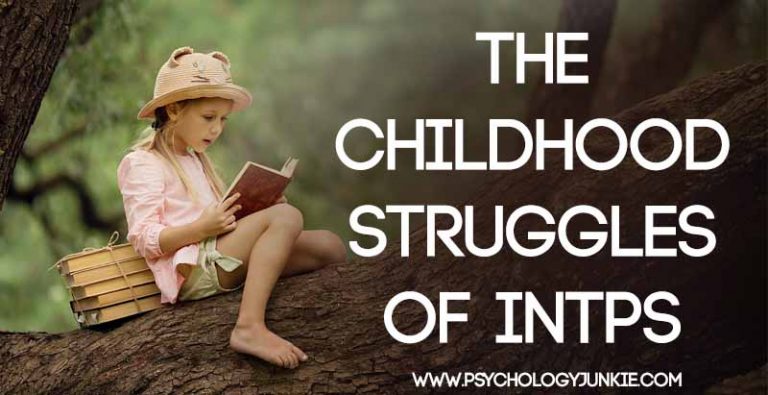

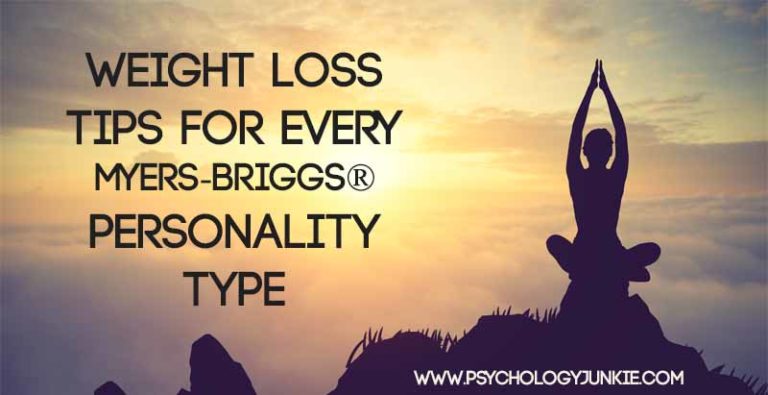
As an INFP, I wrote things out and it helped tremendously in dealing with these issues. Now, I generally speak up and tell my significant other how I feel straight out instead of allowing it to simmer and fester. It is hard to speak up because of the dislike of confrontation, but clearing the air is better for the psyche.
Thank you for this! I see these patterns in my own marriage (ENFJ & ISTJ) and other relationships. I’m bookmarking this one for future reference!